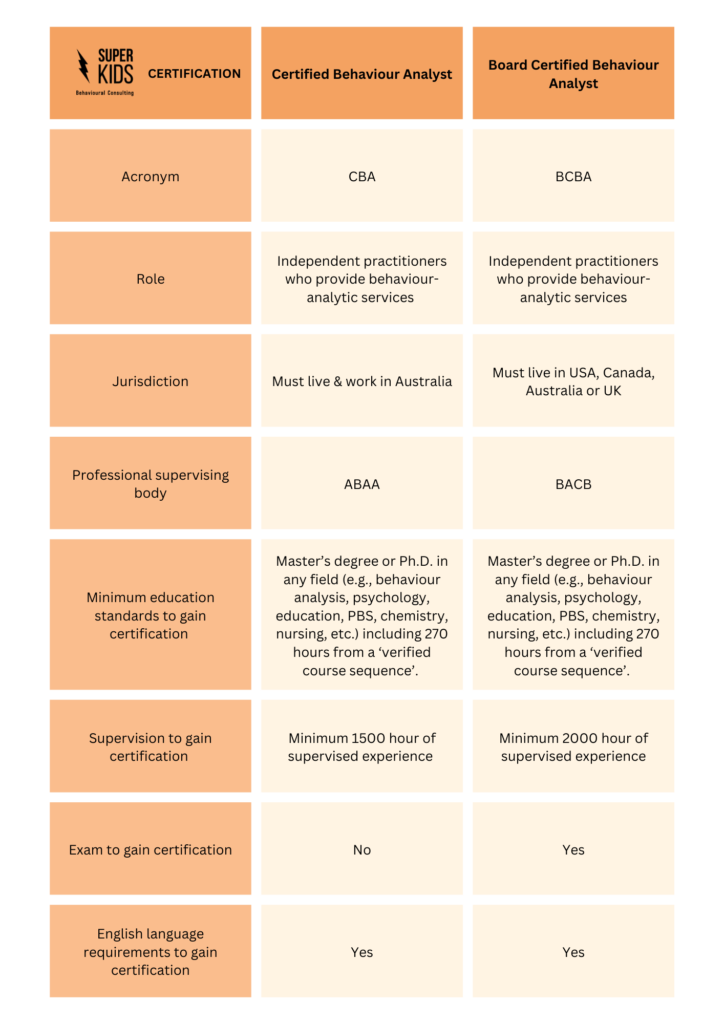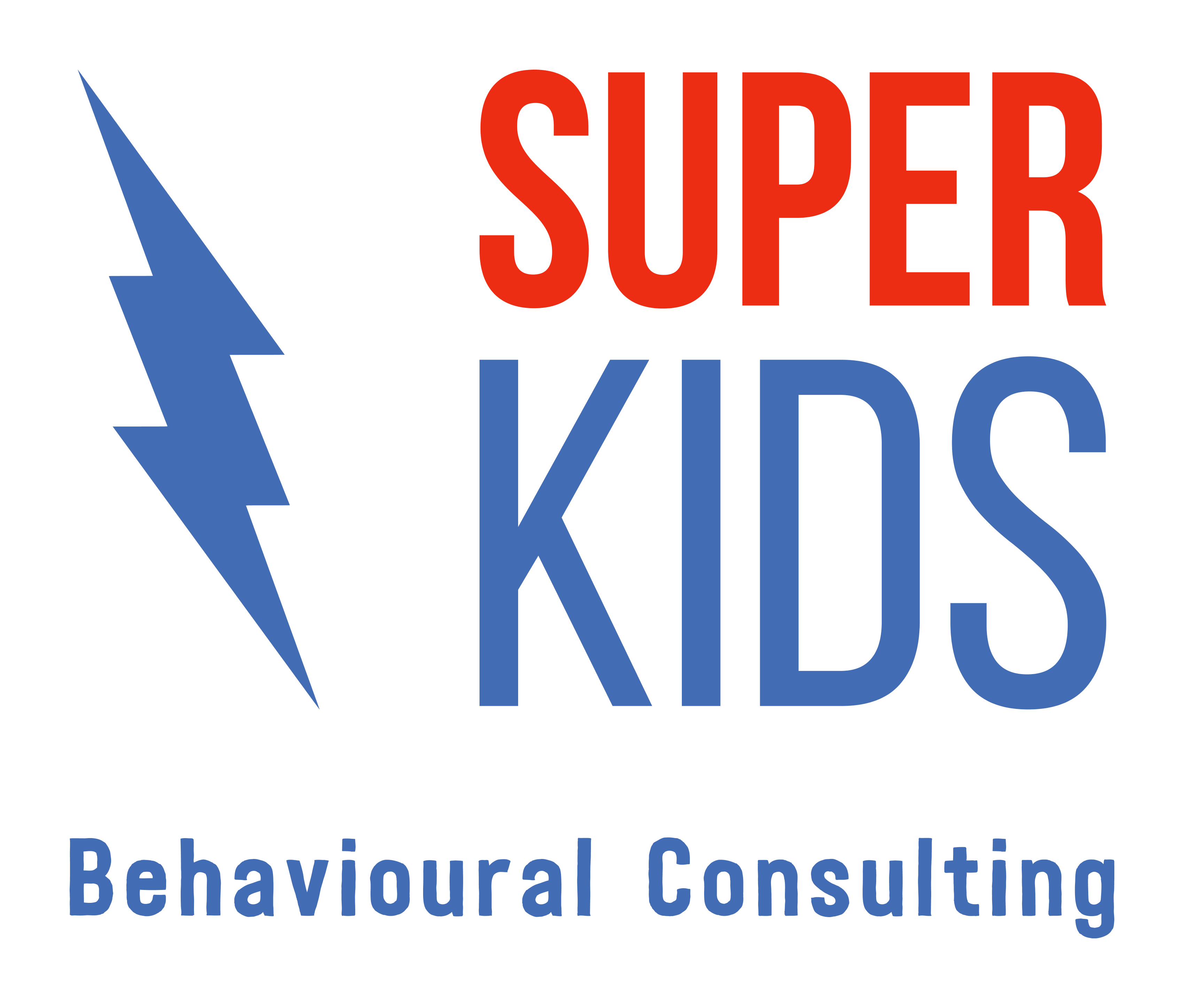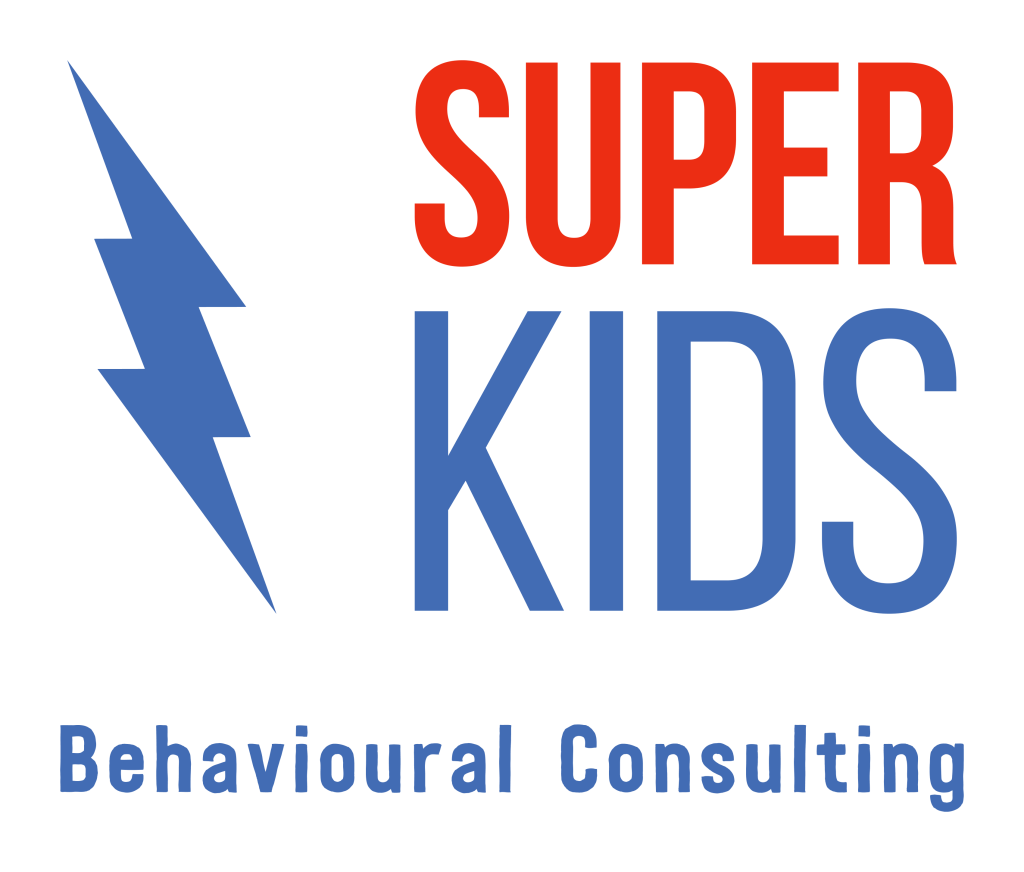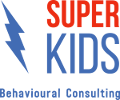What is a Certified Behaviour Analyst (CBA) in ABA Australia?
The Role of a BCBA vs CBA

Renee Collins
Clinical Director

Who should supervise your child's ABA therapy program?
What is the difference between a CBA vs. BCBA? When deciding on who will supervise your child’s ABA program, it is very important to consider the training and experience of that professional. Behaviour analysts are university educated allied health professionals who evaluate, design, and implement individualised programs to improve skills. In Australia, there are two pathways to becoming credentialed in behaviour analysis – the North American Board Certified Behaviour Analyst (BCBA) pathway and the Australian Certified Behaviour Analyst (CBA) pathway. Professionals certified at the BCBA or CBA levels are independent practitioners who provide behaviour-analytic services. A CBA must live and work in Australia.
What is a BCBA and a CBA? The gold standard in Australia
Both the BCBA and CBA credentials are graduate-level certifications in behaviour analysis and are both the gold standard in Australia. Some Australian clinicians may hold both certifications and some may only hold one. The BCBA and CBA certification do have different application processes. These are based on the applicant’s education, supervision, recency of practice and English language proficiency. At this stage, one certification is not better than the other in Australia. Australian survey research indicates that of the clinicians who designed, supervised, and delivered ABA-based programs in Australia, only 31% of ABA held a BCBA credential and 80% had a graduate degree (Leif, et al., 2020). Whilst many of these practitioners had high levels of education and some of the qualifications held by practitioners were in fields related to ABA, such as Positive Behaviour Support and Psychology, these qualifications may not have provided in-depth training in the science and professional practice of ABA. It is important that your ABA program supervisor or Behaviour Consultant does have the specialist training and either BCBA or CBA credential.
In 2019, the BACB Board of Directors announced that the BACB would substantially revise its international focus and would cease accepting certification applications from trainees residing in countries outside North America from 2023 (BACB, 2019). Following a period of deliberation with the BACB, Australia was granted an exemption, and, for the foreseeable future, Australian trainees who meet specific coursework and supervised fieldwork requirements (BACB, 2020b) will be able to apply for BACB certification. It is possible that in the future, the BCBA certification will no longer be available in Australia. ABAA will no longer specifically advocate for recognition of the North American BCBA credential in Australia and instead is encouraging Australian professionals to use the CBA credential.
Comparison of BCBA and CBA certification

Australian certification & regulation - CBA vs CBA-U
As part of a tiered approach, there are also other Australian certifications available. An Australian Certified Behaviour Analyst – Undergraduate (CBA-U) is similar to a CBA but has completed less training and is not suitably qualified to independently supervise an ABA program. They may provide behavior-analytic services under the supervision of a CBA. This level of membership communicates completion of behaviour analytic course work at an undergraduate level and completion of formal supervision.
CBAs and CBA-U’s are part of a system of National self-regulation in Australia. Behaviour analysis is a self-regulated profession in Australia; therefore, registration or licensing is not mandated but strongly recommended. Benefits of this include that it allows the Australian behaviour analysis community to set our own standards of practice for what knowledge, skills, and experience are required for behaviour analysts to practice in a safe and effective manner. It also allows the Australian behaviour analysis community to develop a code of ethics and a complaint procedure that fits our values and apply it to the Australian context. These benefits lead to a more transparent profession that allows for increased consumer confidence in behaviour analysis as a profession in Australia.
CBA’s are self-regulated professionals and are a qualifying member of the National Alliance of Self Regulating Health Professionals (NASRHP). CBA’s are therefore required to abide by the ABA Australia Code of Ethical Practice and maintain their certification with ongoing professional development. In the future, we will work to ensure that CBAs are recognised professionals in the wider Australian education and disability sectors, including the by the NDIS.
All Behaviour Consultants at Super Kids are CBAs, which is the minimum level of competency of an ABA professional that should be supervising your child’s ABA programs. Learn more about our highly experienced and qualified clinical team here.
Learn more about BCBAs vs CBAs
If you still want to learn more about a BCBA vs a CBA please visit the following websites:
CBA and CBA-U: https://auaba.com.au/CBA
Super Kids acknowledges each individual’s personal preference to use identity-first or person-first language to describe themselves or their loved one. We interchangeably use both language conventions and therefore refer to both Autistic children and children with Autism.






